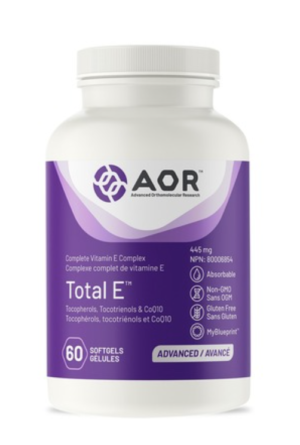Chances are that if you have a well-balanced diet, you’re likely getting enough vitamin E from the foods you eat and don’t need to take a supplement. Found in abundance in plant foods like sunflower seeds, oils, nuts, kiwi and spinach in addition to many other great natural sources, vitamin E is an important nutrient that helps keep our bodies healthy.
Benefits of Vitamin E
Vitamin E is a powerful antioxidant and fat soluble vitamin that helps nourish, protect and heal the body Some of its most recognized benefits include:
Preventing Diseases from Forming:
Vitamin E helps to inhibit the damage caused by free radicals and inflammation, two precursors to illnesses like cancer and heart disease. It also helps to improve overall immunity.
Enhancing Skin Health:
Vitamin E is one of the skin’s best friends. Whether you have a sunburn, scars or even wrinkles, vitamin E can help. It nourishes the skin, speeds up cell regeneration, reduces inflammation and has anti-aging capabilities. When mixed with vitamin C, it can also improve signs of eczema and acne.
Thickening Hair:
The antioxidants present in vitamin E help to thicken and maintain healthy hair by protecting it from environmental damage. It also helps to add moisture and is often included in many hair care products.
Increasing Energy Levels:
By promoting blood circulation, vitamin E helps reduce fatigue and nourish blood cells which helps increase energy levels and physical endurance, in addition to helping build muscle strength.
Improving Vision:
Known for improving vision, vitamin E helps protect the eye from free radicals and decreases vision related diseases like macular degeneration and cataracts.
Balancing Hormones:
Vitamin E helps to naturally balance hormone levels which is significant since it can impact our weight, skin, anxiety, fatigue and PMS.
Maintaining Cholesterol Levels:
As an antioxidant, vitamin E can help to maintain healthy cholesterol levels by protecting the LDL levels (good cholesterol) and HDL cholesterol (bad cholesterol) levels from oxidizing.
Impacting the Nervous System:
Needed for optimal neurological function, studies show that vitamin E can help slow down the effects of neurodegenerative illnesses like Alzheimer’s disease.
In addition to the benefits mentioned above, Vitamin E is also crucial during pregnancy and for a child’s development. It helps to control inflammation and protect the critical fatty acids and is critical for neurological and brain growth.
Although vitamin E deficiencies are very rare, they can affect people who have fat absorption problems and people with genetic disorders. Vitamin E deficiencies are dangerous because they can cause nerve and muscle damage and a weakened immune system.
If you don’t get enough vitamin E from your diet, supplements are also available. In addition to topical varieties like oils or ointment which are applied directly to the skin and hair.
While most people don’t have any side effects from taking vitamin E, too much of it can be a problem. Like with any supplement, it’s recommended to speak with your health care practitioner before taking vitamin E supplements specifically due to issues that can arise when not taken correctly in conjunction with certain medications or illnesses. To avoid any complications, it’s best to get your vitamin E intake from the food you eat, especially since there are so many great choices out there.
SHOP THE POST






 No products in the cart.
No products in the cart.